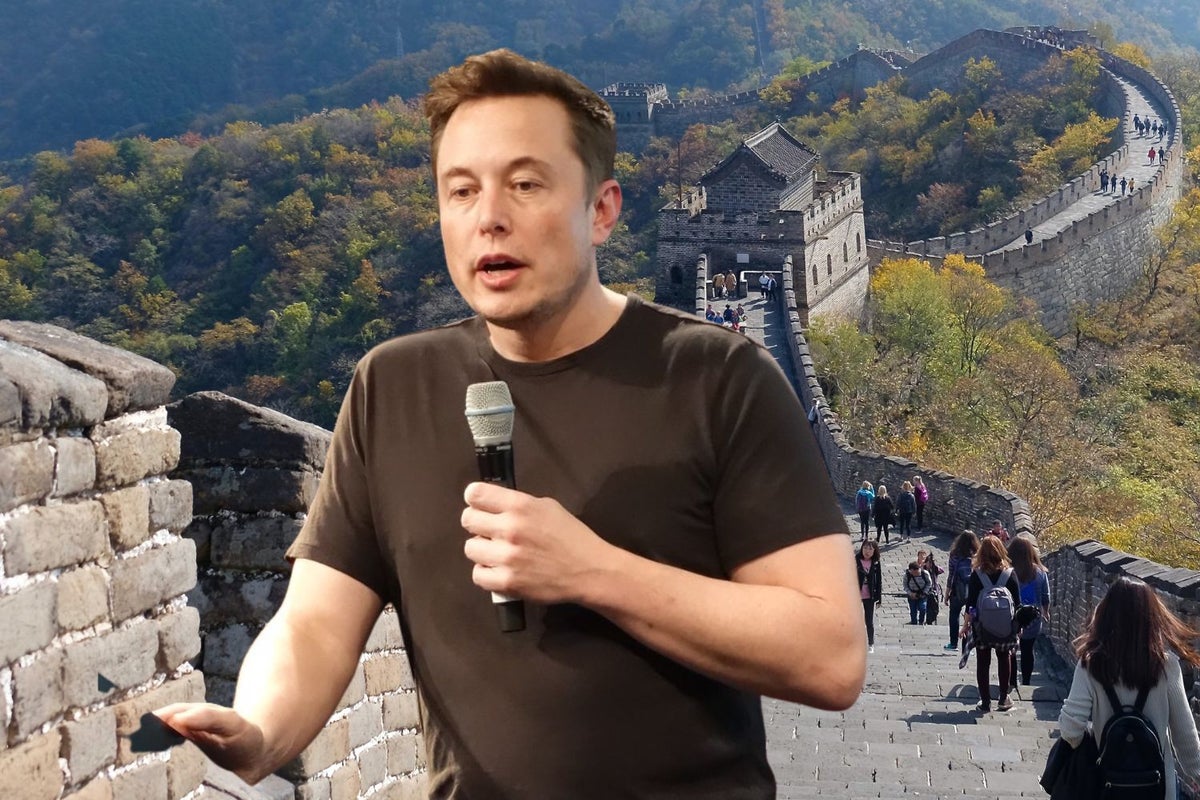[ad_1]
The world’s richest person has weighed in on the war between Ukraine and Russia recently. The comments by Tesla Inc TSLA CEO Elon Musk upset many. In a new interview, Musk made additional comments on the conflict in Ukraine and also discussed China and Taiwan.
What Happened: Musk has offered his support to Ukraine via Starlink satellites from SpaceX. The Tesla CEO also took to Twitter to share what he thinks needs to happen to end the war between Russia and Ukraine.
Musk is now weighing in on a potential battle between China and Taiwan.
Musk admitted to the Financial Times in an interview that China has been displeased with his support for Ukraine with Starlink satellites. Musk said China wants to make sure he will not sell Starlink in the country.
Production of Tesla vehicles in China is important as it covers between 30% to 50% of the total electric vehicle unit volume for the company.
A potential conflict between Taiwan and China could impact Tesla and other companies, Musk said. The conflict could mean Tesla is able to supply its vehicles to customers in China from the Chinese factory, but not export them elsewhere.
“Apple would be in very deep trouble, that’s for sure,” Musk added.
Musk said Apple Inc AAPL could see a big impact from any conflict between China and Taiwan, and the global economy could take a 30% cut as well.
“My recommendation…would be to figure out a special administrative zone for Taiwan that is reasonably palatable, probably won’t make everyone happy,” Musk said. “And it’s possible, and I think probably, in fact, that they could have an arrangement that’s more lenient than Hong Kong.”
Related Link: Elon Musk: The Chinese Economy Is At Risk, And Not Because Of Taiwan
Musk Gets Praise For Comments: While Musk’s comments on a peace proposal between Russia and Ukraine haven’t generated much support, at least one official praised the Tesla CEO’s comments on China.
“I would like to thank Elon Musk for his call for peace across the Taiwan Strait and his idea about establishing a special administrative zone for Taiwan,” China’s ambassador to the U.S. Qin Gang said.
Gang said one country, two systems is part of China’s basic principles for “resolving the Taiwan question.”
The Chinese official said the approach could work as long as “China’s sovereignty, security and development interests are guaranteed.”
Mao Ning, a Foreign Ministry spokeswoman for China, also supported the claims.
“Provided that national sovereignty, security and development interests are assured, Taiwan can adopt a high degree of autonomy as a special administrative region,” Ning told reporters Sunday.
Photo: Created with an image from Steve Jurvetson on Flickr
[ad_2]
Image and article originally from www.benzinga.com. Read the original article here.

